Getting a degree while working is now possible, with an advanced-training apprenticeship
The Varese Union of industrialists has signed an agreement with the trade unions CGIL, CISL and UIL, to introduce final year students from the universities of Insubria and LIUC into the world of employment, and to balance family with work. “The Varese model is successful.”
“The Varese model” is in good health. The agreement signed in the UNIVA premises, between the industrialists and the trade unions, CGIL, CISL and UIL, is not just a response to the crisis, but an actual attempt to look beyond, to the future. Giovanni Brugnoli, the chairman of UNIVA, talked about a “final rush” preceded by agreements on credit and on internationalisation. So, it was necessary to go full circle, and this agreement on the advanced-training apprenticeship, to introduce university students into the world of employment, and on finding a balance between family and work, does so.
Actually, there is a third point that further consolidates industrial relations in the area, and concerns a “common desire” to proceed together with the demand to the Region and the Government to allocate the resources necessary to cover the demand for redundancy funds for those not covered, for 2013; in addition to this situation, there is the problem of income-deprived early retirees.
“A virtuous model attracts foreign investments to the area,” said Brugnoli. The virtuosity lies in the model which, by combining knowledge, represented by two universities (LIUC and Insubria), with a detailed system of manufacturing enterprises, establishes a concrete project. Although it is in the experimental phase, the advanced-training apprenticeship will give final year students 36-month contracts to obtain a three-year degree, a 24-month contract, for a teaching degree, a 30-month contract for a Master’s, and a 48-month contact for a research doctorate. As Roberto Ceroni, the head of the trade union area of UNIVA, explains, “The training brings demand and supply together, and in the second and the third year, there is the apprenticeship. The training is a tool for getting to know each other, and the apprenticeship, for growing.” There is a mutual advantage, where businesses “try out” qualified workers and final year students see whether the job lives up to their expectations. Thus, in this agreement there is an evolution in the concept of training, which must satisfy not only companies’ needs but also those of the people. Universities will benefit, because they will be able to target their training better. “Having two universities in the area is a very important competitive advantage,” added Vittorio Gandini, the director of UNIVA. “This kind of contract may not have big numbers, but it will provide several opportunities in terms of quality. It’s a genuine guidance tool.” (See photo below, from left, Vittorio Gandini and Roberto Ceroni.)
Antonio Maria Albrizio, the secretary of UIL, confirmed that there are only 142 advanced-training apprenticeship contracts in Lombardy, but the signed agreement has an additional value, because it expresses a basic philosophy that is linked to the manufacturing base of the area, “which we hope will remain,” says Carmela Tascone, the secretary of CISL.
In addition to training, the Varese system also sets in motion a series of actions that relate to finding a balance between family and work, to “create a different social atmosphere between businesses and employees.” In fact, a technical panel consisting of industrialists and trade unions will be created to assess and examine the best cases of company welfare at a local and national level, and then bring these “good practices” to the area.
Finally, having “a common voice” on issues such as income-deprived early retirees and a redundancy fund for those not covered is further evidence of cohesion, for relaunching the system of industrial relations and representation.
“For the fund for those not covered,” said Franco Stasi, CGIL, “we have allocated resources that cover 50% of the effective requirement of companies. We are thinking about a different distribution of the national resources in the various regions, that takes account of the number of manufacturing companies in the various areas.”
TAG ARTICOLO
La community di VareseNews
Loro ne fanno già parte
Ultimi commenti
Roberto Ganna su Elsa Fornero a Varese: “Abbiamo tolto futuro ai giovani. Ora dobbiamo restituirglielo”
Baffetta su Elsa Fornero a Varese: “Abbiamo tolto futuro ai giovani. Ora dobbiamo restituirglielo”
Fabrizio Tamborini su Elsa Fornero a Varese: “Abbiamo tolto futuro ai giovani. Ora dobbiamo restituirglielo”
Alessandro Zanzi su Elsa Fornero a Varese: “Abbiamo tolto futuro ai giovani. Ora dobbiamo restituirglielo”
Emanuele Zanetti su Motociclista di Ferno ucciso da un orso in Romania
GrandeFratello su Superate le 700 firme per la petizione sul recupero del Grand Hotel Campo dei Fiori di Varese



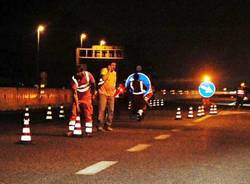


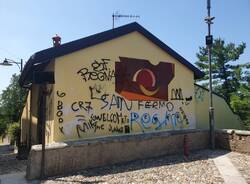
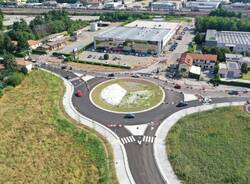


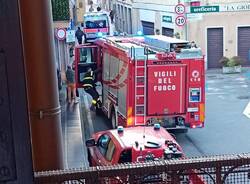
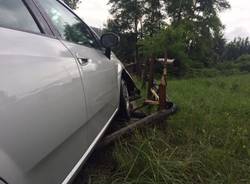

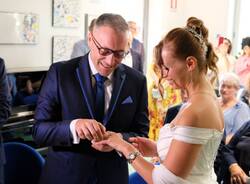

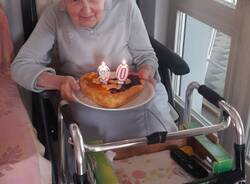




Accedi o registrati per commentare questo articolo.
L'email è richiesta ma non verrà mostrata ai visitatori. Il contenuto di questo commento esprime il pensiero dell'autore e non rappresenta la linea editoriale di VareseNews.it, che rimane autonoma e indipendente. I messaggi inclusi nei commenti non sono testi giornalistici, ma post inviati dai singoli lettori che possono essere automaticamente pubblicati senza filtro preventivo. I commenti che includano uno o più link a siti esterni verranno rimossi in automatico dal sistema.